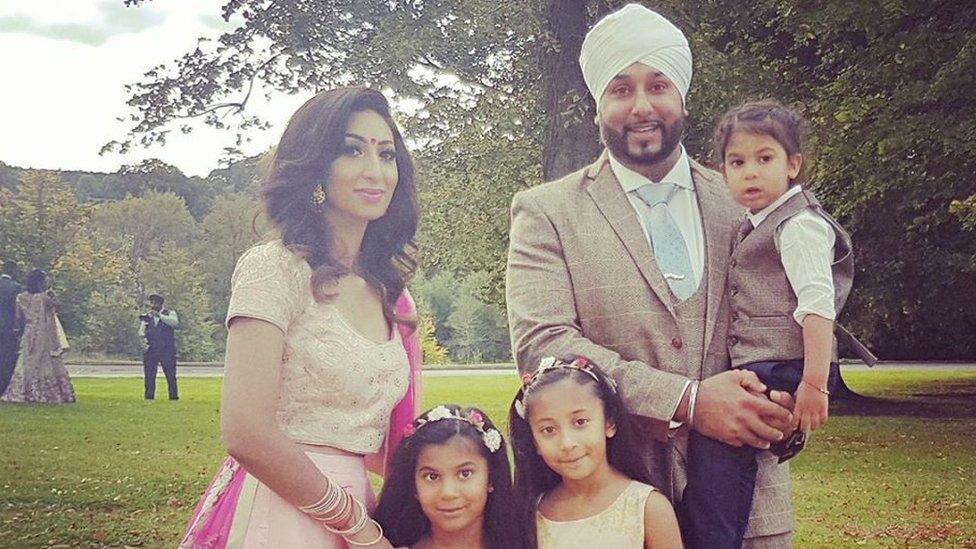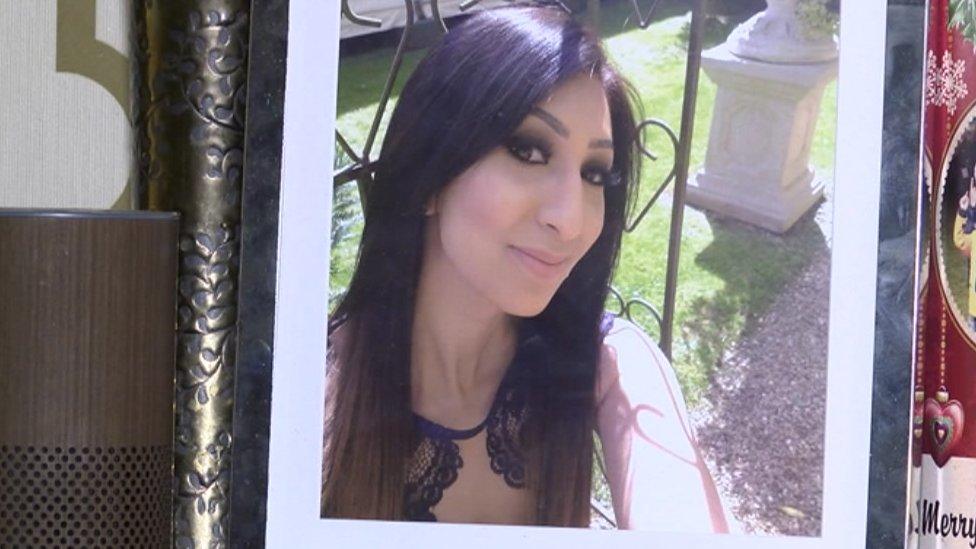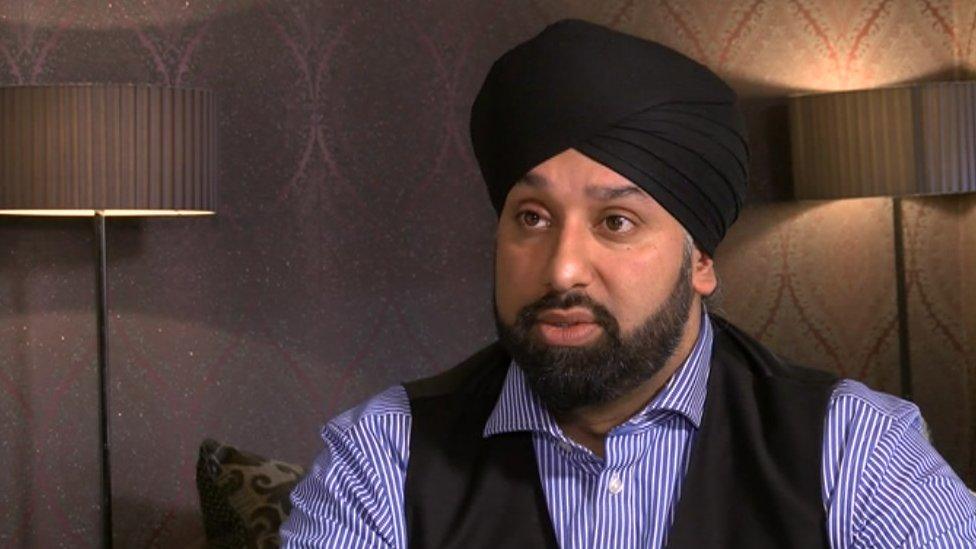Leamington father's dilemma over children's genetic cancer test
- Published
Father's dilemma over genetic cancer test.
A father must wait years before he can find out if his three children carry the cancer gene that led to his wife's death.
Raj Singh Rainu's 34-year-old wife Nim, from Leamington Spa, died in September after being diagnosed with aggressive stomach cancer in January 2018.
Their three children, aged nine, five and three, have a 50-50 chance of inheriting the "cancer gene", he said.
However, they cannot be tested until they are at least 16 years old.

Mr Rainu says doctors told him there was a 50-50 chance his children could have the cancer gene
Mr Rainu, 35, has launched a campaign to encourage more people to ask about being tested for genetic cancers before it is too late.
But an expert in genetic cancers said even if a parent approached him about testing their child before they were 16, he would refuse as it would take away the child's right to choose whether or not they found out.
Mr Rainu said his wife had a relative who had also died from stomach cancer in their late 30s but the couple did not find this out until she was diagnosed.
"A consultant did a family tree for us and we realised it could be genetic," Mr Rainu, who runs his own estate planning business, said.
"That's when we were told our children Naveen, Avaani and Veerun have a 50% chance of inheriting the gene.
"If only we had known about the tests 10 years ago, Nim could have been tested and she could still be here today."

Mrs Rainu died after being diagnosed with aggressive stomach cancer
Mrs Rainu's symptoms showed up late, and she suddenly became unable to eat and lost a lot of weight, her husband said.
After her diagnosis, she was told neither removing her stomach nor chemotherapy would help.
"With my children, it's a tough one. Would I rather live my life knowing that I don't know whether they've got it or not, or it could be too late like my wife?" Mr Rainu said.
You may also be interested in:
Dr Marc Tischkowitz, consultant physician in medical genetics at the University of Cambridge, said: "This is a really difficult issue and we would always look at it from the point of view of the child.
"If someone came to us at 16 to ask to be tested, we would tread very carefully. However, once that person reaches 18 it becomes a lot easier.
"Of course having a test before 16 would alleviate a significant amount of anxiety for the parents but then you have to think about the child.
"Having a child tested at say five years old, we'd have to think what is the benefit of that for the child?
"You also have to think about the impact of knowing on the relationships, so would it affect how that child is treated by his or her parents or siblings?
"It's important to make the public aware that this type of cancer is particularly rare."

Raj Singh Rainu is campaigning for more people to get tested for genetic cancers
In its online advice, external, NHS England advises people to speak to their GP if they are concerned about genetic cancers.
It says: "Cancer is not usually inherited but some types can be strongly influenced by genes and can run in families."
Georgina Hill, from Cancer Research UK, said: "It's estimated only 3-10% of cancer cases are linked to an inherited faulty gene.
"There are advantages and disadvantages of genetic tests. Clinics offer counselling to help people decide whether having a test is the right choice for them and provide support following test results."

Follow BBC West Midlands on Facebook, external, on Twitter, external, and sign up for local news updates direct to your phone, external.
- Published5 December 2018
- Published27 June 2018